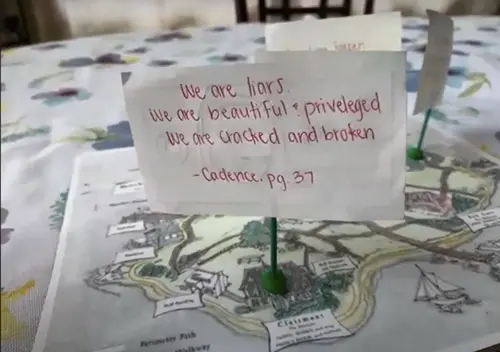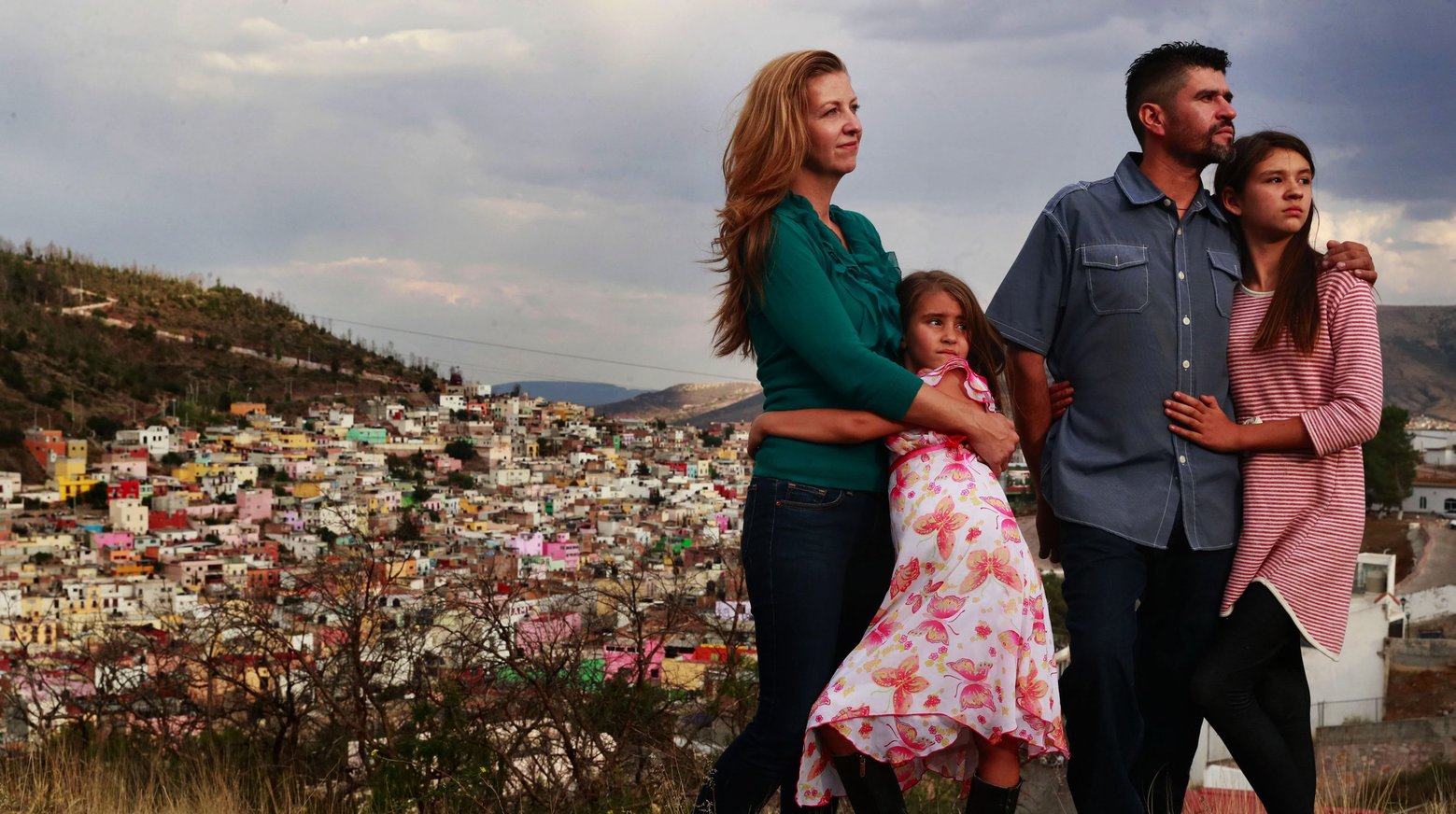This unit was created by Edith Middleton, a 10th grade English teacher in Pukalani, HI, as part of the spring 2021 Pulitzer Center Teacher Fellowship program on Stories of Migration. It is designed for facilitation across approximately eight weekly 90-minute in-person or virtual class periods.
For more units created by Pulitzer Center Teacher Fellows in this cohort, click here.
Unit Objectives:
Students will be able to…
- Read The Tempest by William Shakespeare in its entirety during scheduled class.
- Closely analyze excerpts from:
- Mary Rowlandson's The Captive: The True Story of the Captivity Of Mrs. Mary Rowlandson Among the Indians
- “The Danger of a Single Story” by Chimamanda Ngozi Adichie
- “Olive Oatman: Life among the Mojave”
- Consider how canonical literature may position white characters in relation to those of different ethnicities.
- Question the positive and negative perspectives of migration and its similarities and differences that inform or alter human behavior.
- Explore literary and Pulitzer Center journalistic texts to expand understanding of how perspective, identity, and authorship shape texts and perspectives on migration.
Unit Overview:
In an eight week unit of study, students will explore concepts of migration through the lens of cultural identity and perspective. What are elements of culture that shape us, shape how we see others, and shape how we are seen in return? Students will investigate shifts in cultural norms and stereotypes specific to forced migration and captivity as depicted in The Tempest by William Shakespeare and supplemented through a variety of texts, discussions, and reflections.
The Tempest is generally regarded as Shakespeare’s last play. The theme of Utopian-ism is linked to the explorations of new lands. The period in which it was written, the seventeenth-century age of exploration, the circumstances of its performance at court, and the context of the playwright’s writing career, suggest immediately some of its rich themes and ambiguities. The play can be read as Shakespeare’s commentary on European exploration of new lands. Prospero is banished from his Dukedom with his young daughter and forced to migrate to an island with a native inhabitant, Caliban, a being he considers savage and uncivilized. He teaches this “native” his language and customs, but this nurturing does not affect the creature’s nature, at least from Prospero’s point of view. Prospero does not drive Caliban away, rather he enslaves him, forcing him to do work he considers beneath himself and his noble daughter. As modern readers, sensitive to the legacy of colonialism, we need to ask if Shakespeare sees this as the right order; what are his views on imperialism and colonialism? How does Prospero’s forced migration affect his identity and transformation? What are our twenty-first-century reactions to the depictions of the relationship between the master and the enslaved, human connections, and elements of changed behaviors and beliefs, as a result of Prospero’s forced migration, demonstrated in this play?
In addition to reading The Tempest by Shakespeare as the mentor text, students will select an Independent Reading (IR) book, with a perspective, and read independently for the duration of the unit with a culminating IR project related to unit objectives. Students will also explore literary and journalistic texts, which they will analyze to expand their understanding of how perspective, identity, and authorship shape texts and perspectives on migration.
Performance Task:
Students will synthesize and analyze what elements of culture shape us, shape how we see others, and shape how we are seen in return; incorporating shifts in cultural norms and stereotypes specific to forced migration and captivity.
Students will pick and vote, as a class, from two summative performance task options:
- Socratic Seminar (completed as a collective with individual question preparation)
- Editorial Essay or Short Film (completed individually)
In addition, students will complete and present an Independent Reading (IR) Summative Project, Literary Elements PowerPoint, 3D Quotes Project, or Book Trailer.
Eight-day unit plan, including warm-ups, texts and video resources, discussion questions, activities, graphic organizers for student projects, and performance tasks for the unit.

This unit is assessed through the following formative and summative assessments.
Formative Assessments
Lesson 1:
- Padlet documentation of selected text for independent reading
- Padlet reflections on the nature of perspective
- Anticipation questions for The Tempest
Lesson 2:
- The Tempest quote analysis
- Padlet documentation of selected summative project for independent reading text
Lesson 3:
- Padlet discussion on The Tempest
- Text analysis questions for The Tempest
Lesson 4:
- Padlet discussion on The Tempest
- Text analysis questions for The Tempest
Lesson 5:
- Annotation of an excerpt from Mary Rowlandson’s narrative
- Padlet discussion on canon and perspective
- Analysis of perspective in “Olive Oatman” and “The Danger of a Single Story”
Lesson 6:
- Padlet discussion of perspective in Pulitzer Center journalistic texts
- Analysis worksheet for Pulitzer Center journalistic texts
Lesson 7:
Classes choose between two performance task options, and complete a preparation packet for either a Socratic Seminar or an Editorial Essay / Short Film project, which help students outline their summative projects and cite literary and journalistic texts used throughout the unit.
- Socratic Seminar preparation packet
- Editorial Essay preparation packet
- Short Film preparation packet
Summative Assessments:
Students will pick and vote, as a class, from two summative performance task options:
- Socratic Seminar (completed as a collective with individual question preparation)
- Editorial Essay or Short Film (completed individually)
In addition, students will complete and present an Independent Reading (IR) Summative Project in the form of a Literary Elements PowerPoint, 3D Quotes Project, or Book Trailer.
- 3D Quotes Project: Student example
- Book Trailer: Student example
Common Core Standards:
CCSS.ELA-LITERACY.RI.9-10.1 Cite strong and thorough textual evidence to support analysis of what the text says explicitly as well as inferences drawn from the text.
CCSS.ELA-LITERACY.RI.9-10.3 Analyze how the author unfolds an analysis or series of ideas or events, including the order in which the points are made, how they are introduced and developed, and the connections that are drawn between them.
CCSS.ELA-LITERACY.RI.9-10.4 Determine the meaning of words and phrases as they are used in a text, including figurative, connotative, and technical meanings; analyze the cumulative impact of specific word choices on meaning and tone.
CCSS.ELA-LITERACY.RI.9-10.6 Determine an author's point of view or purpose in a text and analyze how an author uses rhetoric to advance that point of view or purpose.
CCSS.ELA-LITERACY.RL.9-10.2 Determine a theme or central idea of a text and analyze in detail its development over the course of the text, including how it emerges and is shaped and refined by specific details; provide an objective summary of the text.
CCSS.ELA-LITERACY.RL.9-10.7 Analyze the representation of a subject or a key scene in two different artistic mediums, including what is emphasized or absent in each treatment
CCSS.ELA-LITERACY.RL.9-10.9 Analyze how an author draws on and transforms source material in a specific work
CCSS.ELA-LITERACY.W.9-10.2.B Develop the topic with well-chosen, relevant, and sufficient facts, extended definitions, concrete details, quotations, or other information and examples appropriate to the audience's knowledge of the topic.
CCSS.ELA-LITERACY.SL.9-10.1.C Propel conversations by posing and responding to questions that relate the current discussion to broader themes or larger ideas; actively incorporate others into the discussion; and clarify, verify, or challenge ideas and conclusions.
Nā Hopena A‘o Ha Statement:
- Responsibility Ma ka hana ka ‘ike, ma ka ‘imi ka loa’a
- Excellence ‘A’ohe’ulu e loa’a i ka pokole o ka lou
- Aloha E ‘opu ali’i
- Total Well-being Ua ola loko i ke aloha
Global Competency:
- Investigate the world beyond their immediate environment
- Recognize perspectives
- Communicate ideas effectively with diverse audiences






















